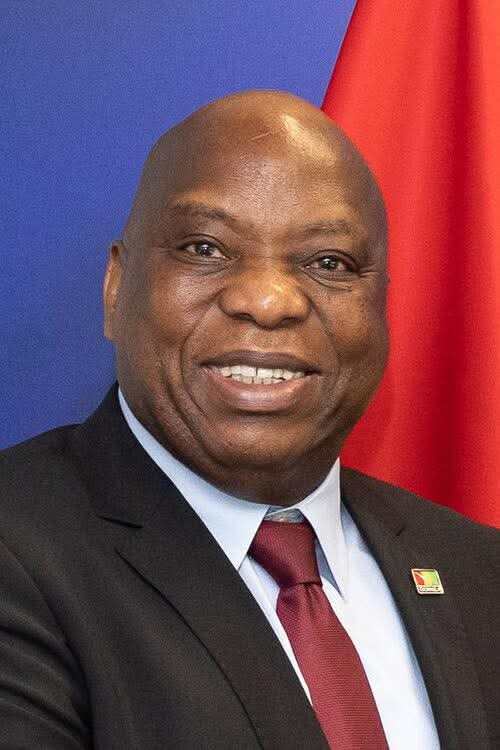Diplomatic tensions stir as Conakry demands investigation and justice in cross-border incident
Conakry, Guinea – July 24, 2025 –
Diplomatic ties between Guinea and Liberia have come under scrutiny following an incident involving a Guinean national allegedly assaulted by Liberian police officers. In response, Guinea’s Minister of Foreign Affairs, African Integration, and Guineans Settled Abroad, Dr. Morissanda Kouyaté, on Thursday formally summoned Mr. Samuel Semah, the chargé d’affaires of Liberia’s embassy in Conakry, to demand clarity and accountability from the Liberian government.
The meeting was prompted by a widely circulated video allegedly showing Liberian police assaulting a woman reported to be of Guinean nationality. The footage has drawn public outrage in Guinea, with senior government officials viewing the episode as not only a human rights issue but a matter of national dignity and regional diplomacy.
Guinea’s Diplomatic Protest
During the engagement, Minister Kouyaté expressed his government’s firm condemnation of what he described as “inaccuracies” and misconduct by Liberian police officers. He called for a full investigation into the incident, stressing that the perpetrators must be held accountable in accordance with both domestic and international standards.
“This act, as reflected in the circulating video, is deeply concerning and must not go unpunished,” said Kouyaté. “We expect the Liberian authorities to shed full light on the matter and take immediate corrective action.”
His tone was described as firm yet diplomatic, as he sought to balance outrage with Guinea’s continued commitment to regional cooperation under the frameworks of ECOWAS and the Mano River Union.
Liberia’s Response
In response, Mr. Semah, representing the Liberian diplomatic mission, conveyed regret over the incident and characterized it as an isolated and unfortunate event. He assured Guinean authorities that the Government of Liberia was equally disturbed by the allegations and had already begun internal processes to investigate the incident thoroughly.
Semah praised the Guinean government’s constructive and brotherly approach, acknowledging the gravity of the matter. He committed to relaying Minister Kouyaté’s concerns to Monrovia and pledged that Liberia would act responsibly to preserve the mutual respect and cooperation that have long existed between the two neighboring countries.
A Test of Regional Diplomacy
This development marks a delicate moment in Guinea–Liberia relations, as both nations have traditionally maintained cordial ties with cross-border trade, cultural exchange, and intermarriage forming the bedrock of mutual engagement. The current dispute, however, brings to the forefront long-standing concerns over the treatment of foreign nationals by law enforcement in the region and the potential for diplomatic fallout when such issues arise.
Observers warn that if not carefully handled, the incident could erode confidence in the Boakai administration’s commitment to human rights and regional cooperation. Conversely, prompt and transparent action could serve as a model for how ECOWAS member states can address cross-border disputes through diplomatic and judicial means.
Broader Implications
The Guinean government’s swift summoning of Liberia’s chargé d’affaires reflects a growing trend of African states becoming more assertive in defending the rights of their citizens abroad. With increasing public access to social media and instant video documentation, states now face immediate international scrutiny over the conduct of their domestic institutions, particularly security forces.
For Liberia, the incident adds to mounting pressure on the Liberia National Police, already under fire for alleged misconduct in other high-profile cases. Calls for police reform and stronger internal accountability mechanisms are likely to intensify in the wake of this latest controversy.
Path Forward
As investigations proceed on both sides of the border, diplomatic channels remain open. The response from President Joseph Boakai’s administration in the coming days may determine whether the issue escalates into a full-blown diplomatic standoff or is resolved amicably through mutual cooperation and transparent justice.
For now, the ball is in Liberia’s court, with Guinea — and the international community — watching closely.




